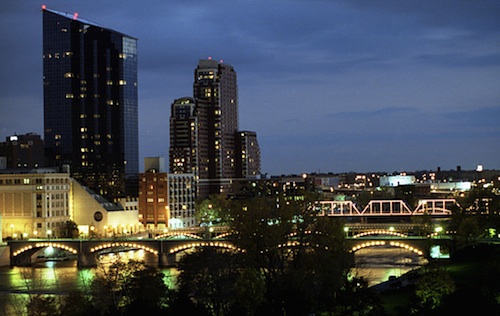One Detroit just created a portal and scorecard system to essentially compare their region to 53 other large metro regions in the United States. You can learn a little more about their methodology here, and get a simpler breakdown here, but by and large here’s the deal. In terms of economy, the top five areas are:
1. Seattle
2. San Jose
3. Houston
4. Boston
5. New York
(These are metro areas, so Seattle includes Tacoma, San Jose includes SF and Oakland, New York includes Newark, etc.) Surprised Dallas isn’t on the list, but otherwise that makes sense.
For education, the top five are all Northeastern cities:
1. DC
2. Boston
3. New York City
4. Albany
5. Hartford
(This broadly reflects where a lot of college graduates are clustered, which makes sense.)
For social equity, it’s:
1. Virginia Beach
2. Salt Lake City
3. DC
4. Raleigh
5. Richmond
(We’ve talked about this before, no doubt.)
For overall quality of life:
1. Grand Rapids
2. Minneapolis
3. Austin
4. Seattle
5. Portland
(Austin’s rate of growth would certainly line up with this. I live in Minneapolis and can tell you most people love it here — the winters are hard as hell, though — but a lot of that is because of familial ties. A lot of Minnesotans don’t actually leave — and if they do, they come back. So it’s also very insular, which can affect quality of life if you’re not from here.)
And for regional transit:
1. New York City
2. Fresno
3. Raleigh
4. Salt Lake
5. Grand Rapids
(The success of Salt Lake from a public transportation standpoint really is extraordinary.)
Interestingly, Fresno was high on regional transit and other markers — and dead last on overall quality of life, with a major drop down from Memphis (second-to-last on that index). Take that for what you will.
The top fives on the above list are pretty scattered geographically, so I’m not sure this One Detroit work would point you to a specific area in terms of where to live — but if you want to know where others are currently headed (and exiting), check this out.
